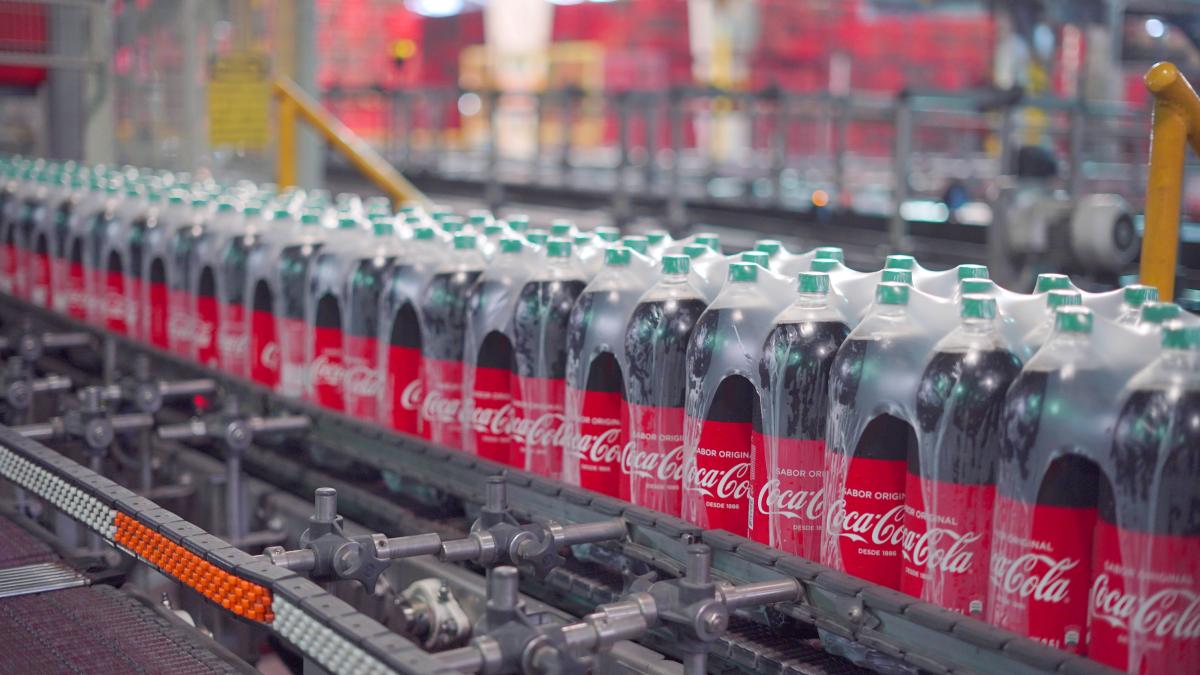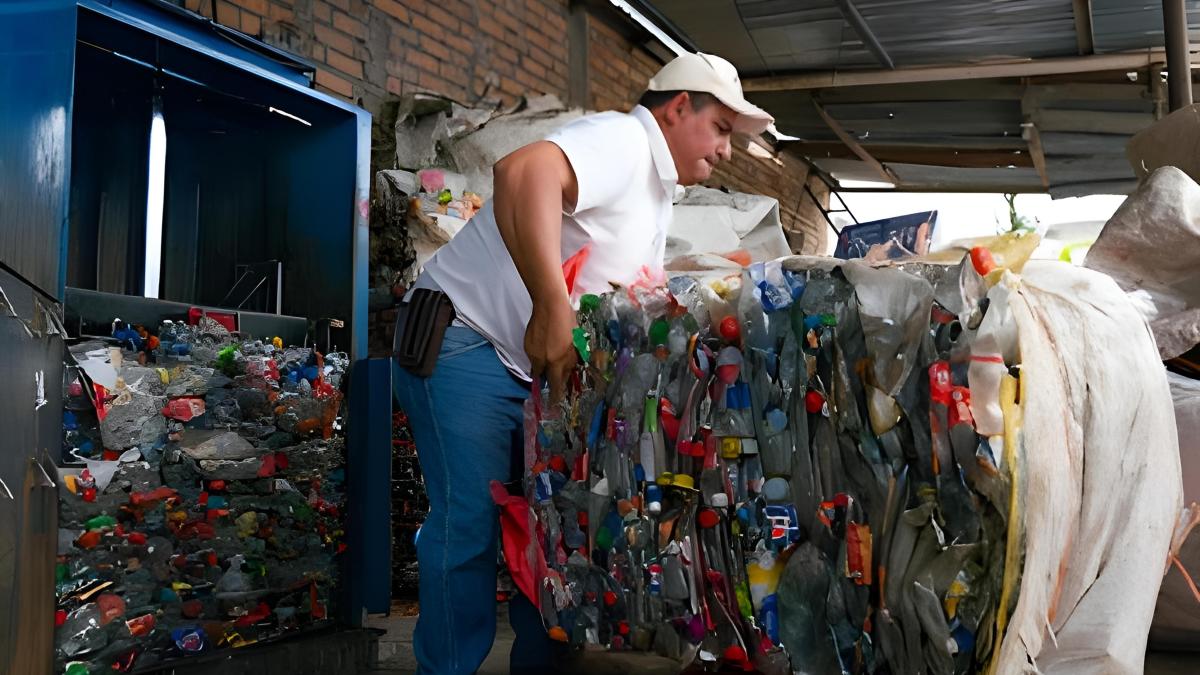Generating Hope and Jobs by Tackling Pollution
Underrepresented Value Chain and Private Sector Engagement: The Key to Locally Led Development in Honduras
Imagine lining dumpsters from Honduras, through Guatemala and Mexico, to the United States border, and filling them with plastic, glass bottles, and aluminum cans. This staggering amount of solid waste represents what Honduras produces in just one year.
Rather than going into a waste management system, much of Honduras’ solid waste is disposed of in nature, severely impacting the environment. Pollution in inland bodies of water can affect the safety of drinking water and facilitate the transmission of endemic mosquito-borne diseases like Zika, dengue, and chikungunya. Additionally, the Mesoamerican Reef, the second-largest coral reef system in the world, situated off the eastern coast of Honduras in the Caribbean Sea, has faced significant threats, hurting its fisheries and biodiversity.
Addressing Solid Waste Management Through Locally Led Development
Beginning in 2017, USAID/Honduras engaged with community, public, and private sector stakeholders in urban and rural areas to hear about their local development concerns as a part of USAID/Honduras’ Local Works program. During listening tours, solid waste management (SWM) emerged as a consistent challenge across sectors and also presented an untapped opportunity to improve waste reduction. The Mission found that many community members viewed discarded plastic as “just garbage.” Only a few understood that the discarded materials had a monetary value, and they wanted to expand and improve on this work.
As with other Local Works efforts, USAID/Honduras supported local stakeholders in thinking strategically about the market value of SWM and their role in the process. Through community consultations around the five phases of SWM – collection, classification, storage, treatment, and final disposition – it became clear that a system-wide approach would have the greatest impact.
Since identifying new opportunities within the interdependent SWM subsystems, individuals and micro-businesses across Honduras are collecting, transporting, and selling recyclables, such as plastics, cardboard, glass, and metals, while also transforming biodegradable materials into agricultural products. Additionally, civil society organizations are raising awareness, organizing stakeholders, and advocating for policy change to improve environmental governance, and municipal agencies are strengthening the enabling environment through ordinances and policies. The result is not only sustainably reducing the negative environmental and social impacts of poor SWM but also financially benefiting vulnerable individuals and communities.

Promoting the Recycling Circular Economy
One of these SWM initiatives is the Reciclar para Crecer (Recycle to Grow, or RPC) project, which helps three urban municipalities foster a culture of recycling and advance a circular economy. Implemented in collaboration with Fundación Cervecería Hondureña (FCH), the philanthropic arm of Honduras’ Coca-Cola bottling company, Cervecería Hondureña (CHSA), RPC is capitalizing on CHSA’s Hágamosla Circular program, which promotes bottle collection and recycling and invests in social and environmental programs.
Since RPC began, many small businesses have collected and sold recyclable plastic to local wholesale collectors. The collectors then sell the items in bulk to Invema, a national company that classifies, stores, and treats the waste plastic. Ivenma then sells ready-to-use recycled plastic to CHSA.
“The bottling company’s commitment has resulted in the use of recycled plastic in the bottling facility,” shares Jorge Reyes, USAID/Honduras Project Management Specialist. “That is now a core business practice.”
Additionally, the RPC project has not only played a significant role in the circular economy but also in promoting recycling culture. RPC has collaborated with two municipalities on SWM workshops and multi-sector working groups, which have promoted the establishment of municipal ordinances to address solid waste management by analyzing and proposing solutions for SWM challenges. Involving stakeholders from the idea incubation phase has encouraged ownership and buy-in.

Helping Lake Yojoa Recover from Pollution
In addition to tackling SWM by addressing waste itself, USAID/Honduras is collaborating with six municipal governments around Lake Yojoa (Asociación de Municipios del Lago de Yojoa y su Área de Influencia, or AMUPROLAGO) and other local partners to address the environmental impact of waste. The SOS Yojoa program focuses on the ecological recovery and sustained health of Lake Yojoa, the only natural freshwater lake in Honduras.
Not long ago, pollution in the lake reached crisis levels: organic matter and trash polluted the lake and deprived fish of adequate oxygen. Local communities implored businesses not to discard their garbage in the lake’s precious waters, but there was no system in place to process waste. Through SOS Yojoa, local actors came together to devise a SWM approach that processes waste generated by local businesses, taps into the supply needs of CHSA, and promotes circular economy principles in various sectors around the lake.
“The Mission is learning a lot about how to engage the private sector,” says Sofia Mendez, USAID/Honduras Project Management Specialist and Deputy Mission Environment Officer. “When we bring together what the private sector wants with development needs, there is success.”
As a key public sector stakeholder, AMUPROLAGO is also developing municipal recycling ordinances with input from local groups, like Guardianes del Lago (Guardians of the Lake), a youth volunteer group that monitors the lake’s quality and implements actions to reduce its pollution. AMUPROLAGO hopes that the model will be adopted by other municipalities around the country.

Addressing Pollution, Empowering Hondurans
Recycling offers a unique pathway to economic empowerment, creating opportunities for individuals collecting materials and fostering businesses within the recycling supply chain while addressing long-term environmental challenges. While much work remains in waste management, these initiatives mark a promising beginning in Honduras. For those who may have once considered migration due to limited local economic opportunities, involvement in Honduras’ circular economy offers a new path forward. For Lake Yojoa and other waterways, it represents new opportunities for healthier ecosystems in the years to come.

